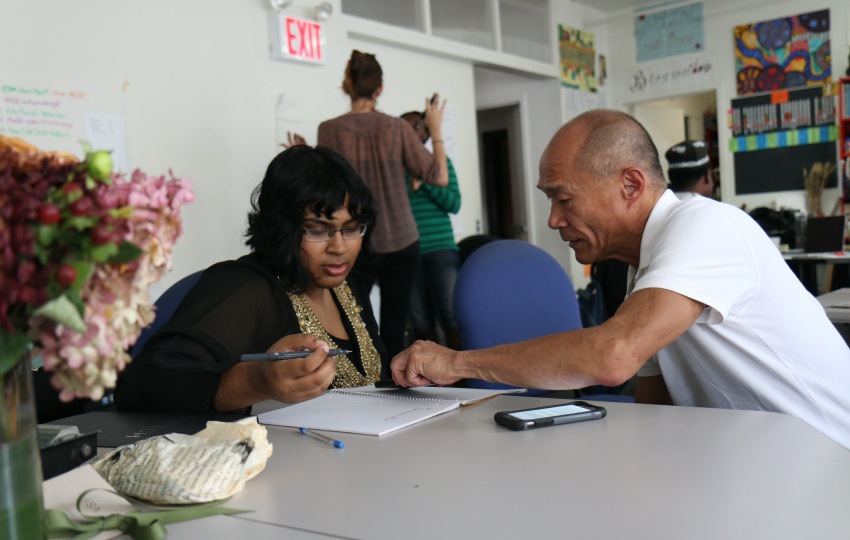The EU pays extra attention to lifelong learning and supporting adult learners in Europe. The world is changing at a breakneck, especially with the broader integration of digital technologies, thus creating a skills gap in older employees.
For this reason, it is crucial the European support lifelong learning and adult learning. These will safeguard the personal and professional development of those employees, helping them to remain competitive in the job market.
Let us dig deeper into the importance of lifelong learning and the European policies favouring adult learning.
What is lifelong learning, and how it relates to adult learning?
Lifelong learning is the constant learning of something new on a self-motivated and voluntary basis. In this specific case, the EU’s interests lie in having a European framework supporting this informal type of learning to facilitate the transition to the digital and green Europe.
The widespread digitalization of the economy has created a new demand for digital skills. These skills starting from basic level ICT skills to even more advanced ones will allow them to continue performing their jobs without interruption. Specifically, according to a CEDEFOP survey, 70% of adult employees in Europe will learn new digital skills.
Adult learning is closely related to lifelong learning, and it pretty much happens for the same reasons. As the name suggests, adult learning focuses on adults as they are differentiated from young people on how they learn and the difficulties they face in the learning process. But generally speaking, adult learning is about pursuing education to learn a skill for personal and, most importantly, professional development.
As the EU further invests in Europe’s digital transformation in all aspects of daily life, older employees become vulnerable and are at risk of being non-competitive. For this reason, the EU supports both lifelong learning and adult learning as it bears the responsibility of equipping its citizens with the skills required to succeed in this new digital world.
EU policies in lifelong learning
The lifelong learning importance was especially highlighted between 2015 – 2020 as it became a European priority. During those years, the EU achieved the following:
- Improved governance with better coordination between policy areas while enhancing effectiveness and relevance to society;
- Increased and the supply and demand for high-quality provision of skills in literacy, numeracy and digital skills;
- Developed effective outreach, guidance and motivation strategies for adult learners;
- Offered more opportunities for adult learning at the workplace, especially in ICT skills;
- Enhanced the adult learning quality via closely monitoring policy impact and improving the training of adult educators.
Concerning today, for the new programming period for 2021-2027, the EU drafted the Digital Education Action Plan to continue what started in 2015 concerning lifelong learning and adult learning in the digital age. This renewed Digital Education Action Plan:
- offers a long-term strategic vision for high-quality, inclusive and accessible European digital education;
- addresses the challenges and opportunities of the COVID-19 pandemic, which has led to the unprecedented use of technology for education and training purposes;
- seeks stronger cooperation at the EU level on digital education and underscores the importance of working together across sectors to bring education into the digital age;
- presents opportunities, including improved quality and quantity of teaching concerning digital technologies, support for the digitalization of teaching methods and pedagogies and the provision of infrastructure required for inclusive and resilient remote learning.
The Digital Education Action Plan will work together with the European Skills Agenda. This is a five-year plan targeting individuals and businesses to develop more and better skills to respond to the current needs.
This type of lifelong learning and the subsequent European policies that supports it aims at strengthening the sustainable competitiveness following the European Green Deal, ensuring social fairness for everyone through access to education, training and lifelong learning everywhere in the EU, and finally, building resilience to react to crises such as the COVID-19.
Upgrade E-adults Erasmus+ European Project
As lifelong and adult learning will continue being a European priority in the years ahead, the EU needs to facilitate the learning process of adults. We tend to think of a traditional classroom full of children – young learners when talking about education. But this is not the case anymore. With the rapid change of technology, lifelong learning is equally important with children’s formal education, and the EU needs a support system in place.
It is for this reason that the Upgrade E-adults Erasmus+ project came into existence. This project collects, shares and disseminates good practices at the European level through the training of trainers, who can provide digital skills, particularly in the use of social networks applied to the world of work to adults. All participants will participate in a European know-how transfer in digital teaching and learning approaches between the participating adult education centres and various educational institutions.
For more information, visit the project’s official website.

